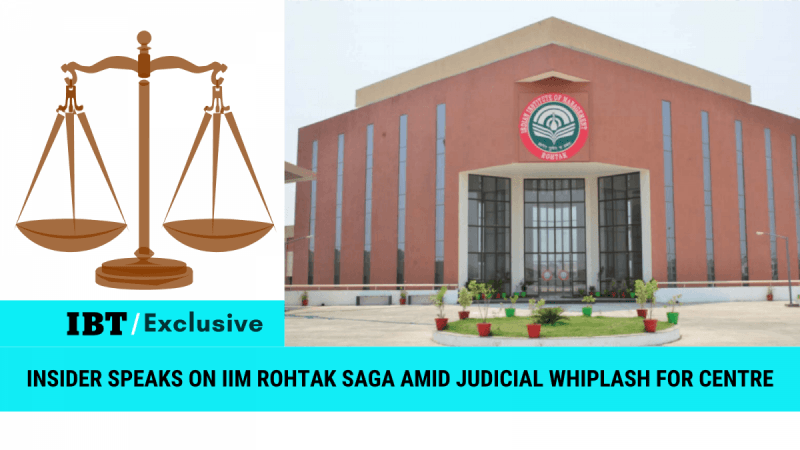
In a stunning rebuke to the government, the Punjab and Haryana High Court has stepped in to block a move by the Ministry of Education to take final action against the Director of IIM Rohtak. The court's intervention not only pauses the attempted ouster but also paints a grim picture of executive overreach and bureaucratic intrigue that could have long-lasting implications for the autonomy of India's premier academic institutions.
The interim order issued by the Punjab and Haryana High Court has effectively clipped the Ministry's wings—at least for now. Calling the timing of the inquiry's sudden activation "an attempt to overreach the process of law," the court barred any final enforcement of the 5 March 2025 directive, which was seen as the first step toward either removing or forcing the Director on leave.
The court was unambiguous in its stance: while investigation may proceed in the background, no final action can be taken until a full hearing on April 22, 2025. This order serves as a legal shield, allowing the Director to continue his duties and pushing back against what critics have called a "malafide" campaign.
A familiar plot, only uglier
The legal counsel for the Director has alleged foul play—accusing government officials of activating new procedures during a High Court recess, after weeks of bureaucratic silence. "It's not only overreach by the government," a source within the board familiar with the developments, speaking on the condition of anonymity, told International Business Times. "It's dirty. The officials are playing a game, and it's bad days ahead for institutions like IIM."
The source added, "This is intervention in academic affairs. The inquiries themselves are not new—what's new is the desperation to push them through when no wrongdoing was found earlier. Now suddenly, there are 'fresh concerns' during a recess? It doesn't pass the smell test."
The issue, the source emphasized, isn't just judicial. "The Honourable Court is doing what it should do. The real concern is that we had to approach the court at all. That's the worrying bit."
Boardroom drama and bureaucratic games
According to the insider, the boardroom at IIM Rohtak has become ground zero for what they describe as "manufactured chaos." The Ministry first declared that the Chairman's term had ended and later reversed its own stance—without any clear documentation or direction from the Visitor (the President of India, in this case, who has the final say in such appointments).
"When it suits them, they say the term is over and action must be taken against the Director. When it suits them again, they say the same chairman continues. You can't run governance on whims," the source said.
In a recent board meeting—described as "a complete farce"—key members were removed abruptly under the claim that their extensions were invalid due to procedural lapses. This stripped the meeting of quorum, but instead of suspending proceedings, a new meeting was reconvened immediately, violating procedural norms.
"The same members were marked as 'observers' in the meeting minutes and later shown as 'members' to meet quorum. That's a violation of every governance manual ever written," the source pointed out.
Is autonomy dead?
This latest standoff has shaken the academic community. IIMs, known for their world-class standards, operate under the IIM Act, which grants them statutory autonomy. The High Court's response suggests that even in the face of bureaucratic muscle-flexing, the law will have the final word.

But that hasn't stopped the alarm bells from ringing.
"This is setting a dangerous precedent," the source, fearing reprisal from the same ministry officer(s) who has dragged the entire ministry with him for his personal ego, added. "If the Director of an IIM can be targeted like this despite clean audits and years of service, who's next?"
The source closely linked to IIM Rohtak Board, added, "This is not legislative overreach—it's bureaucratic overreach. One person, maybe two, have turned this into a personal crusade. This isn't about accountability anymore; it's about control."
Among the fresh allegations is a probe into "incentive payments" given to the Director—a common practice across IIMs. "Now they say it's a problem only in IIM Rohtak? That's laughable," the source said. "The same benefits are standard in other IIMs. Why the double standard?"
Other accusations reportedly include procedural lapses during board meetings—charges that are widely believed to be part of a pattern designed to remove leadership figures unwilling to toe the line.
What's next?
With the next court hearing scheduled for April 22, the fate of IIM Rohtak's Director—and indeed, the sanctity of institutional autonomy—hangs in the balance. The High Court's scathing remarks have already signaled that due process cannot be sidestepped, no matter how high the stakes or who is pulling the strings.
"We believe justice will prevail," the source told IBT in conclusion. "But justice takes time. And sometimes, by the time it comes, irreparable harm has already been done."














